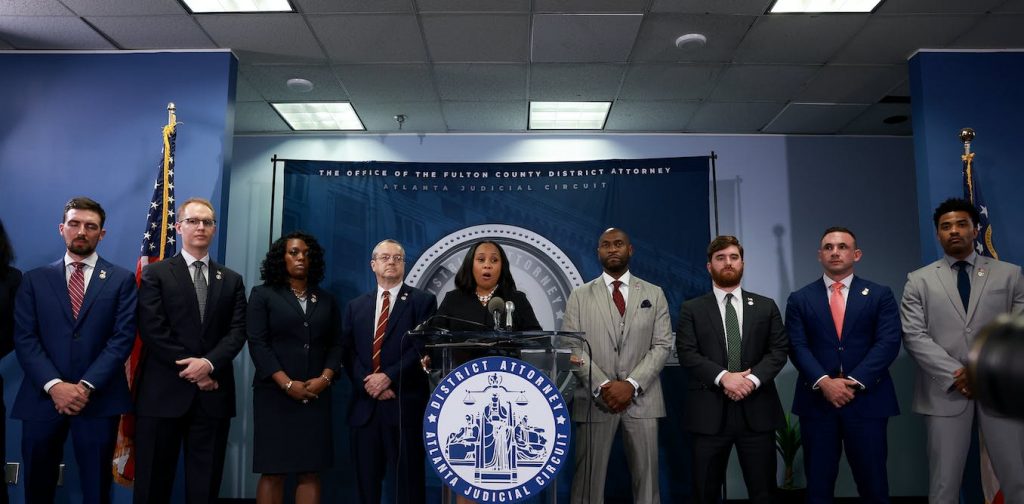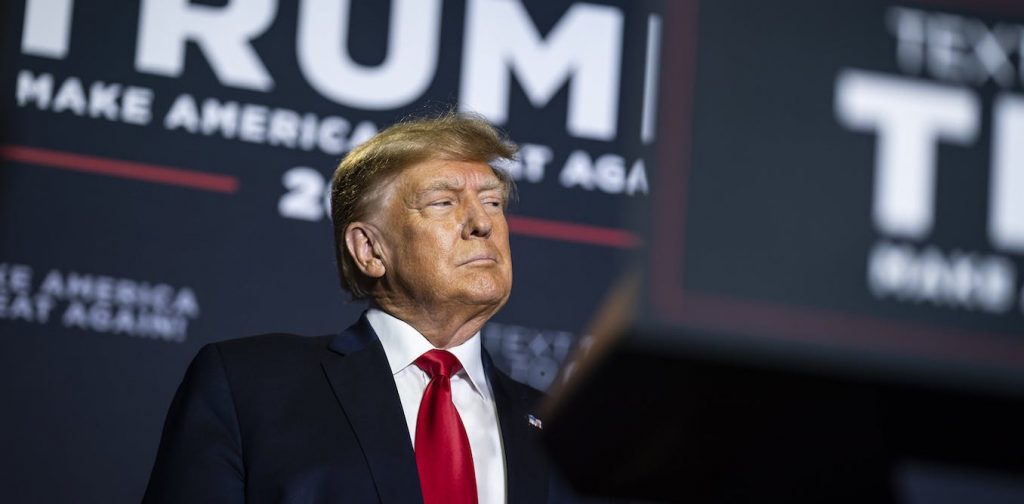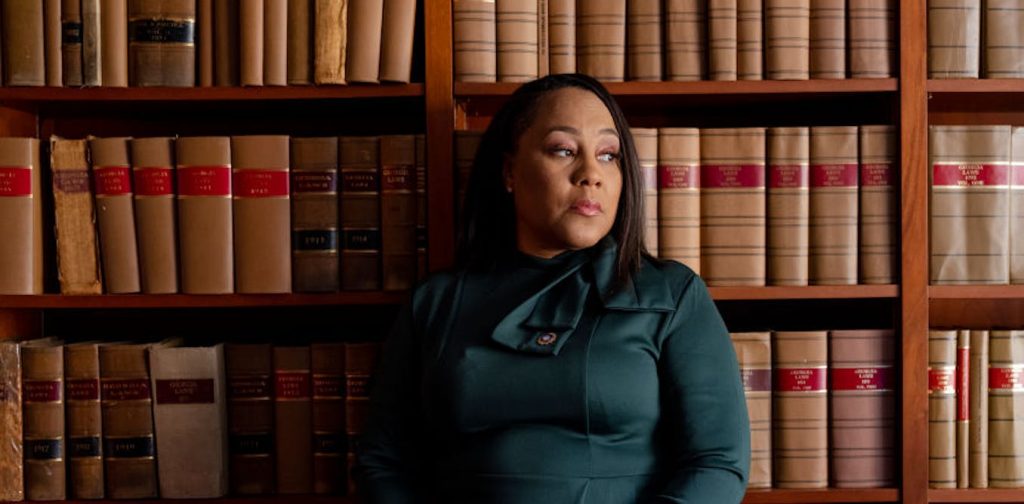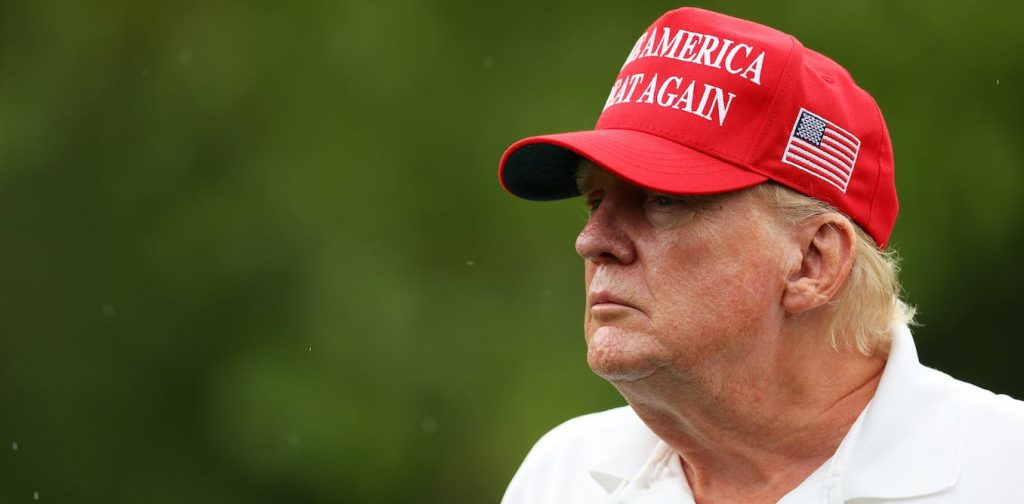Prosecuting a former president is not an easy decision. A criminal law professor explains why
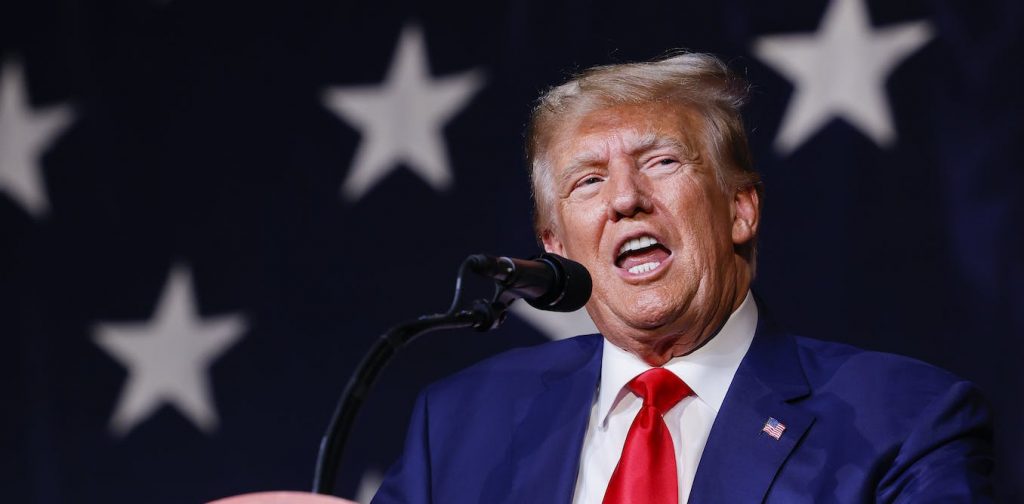
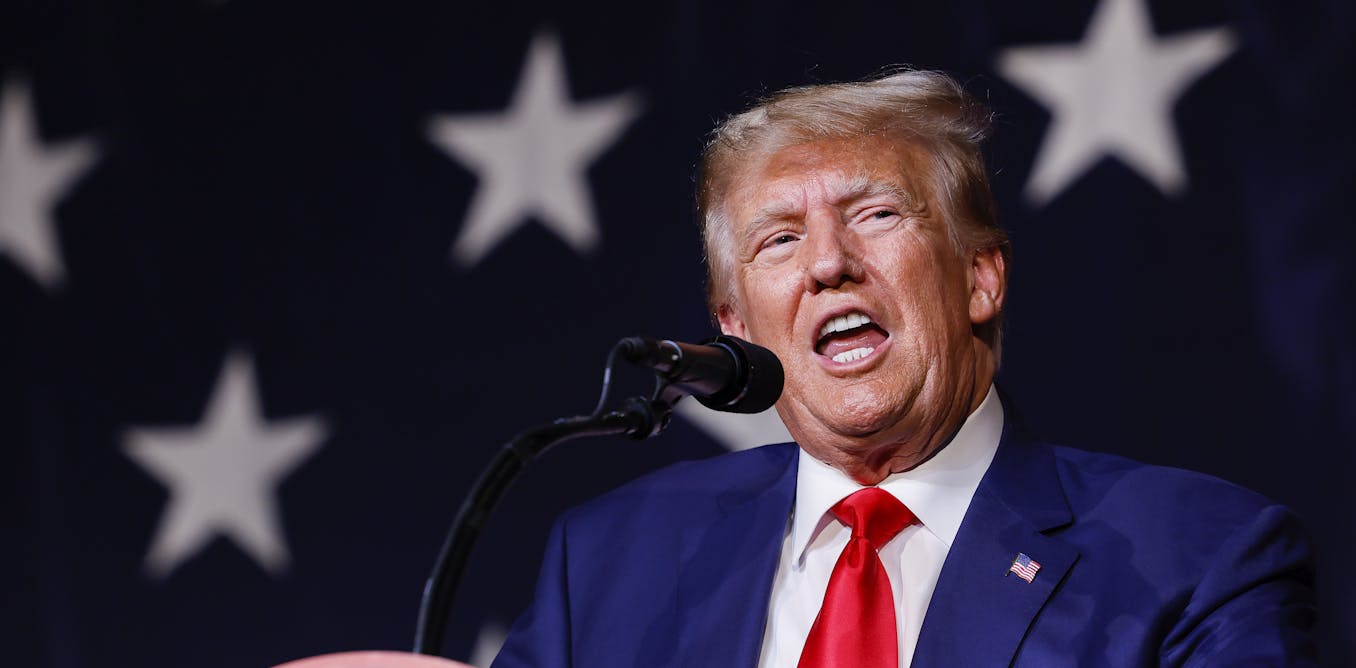
The question of whether to indict a former U.S. president is a difficult one.
And yet, a state prosecutor has charged Donald Trump with violating New York business laws. And a federal prosecutor has charged Trump with violating national security laws as well.
On one hand, the U.S. judiciary system is based on a basic principle of English law that dates back to the early 1200s, that no one is above the law. As medieval jurist Henry de Bracton explained in “On the Laws and Customs of England,” the law makes the king, and thus, the king must be subject to the law.
“The king should be under no man, but under God and the law,” de Bracton wrote.
In his brief public statement, Special Counsel Jack Smith paraphrased that concept in announcing his decision to indict Trump on charges of violating national security laws as well as participating in a conspiracy to obstruct justice.
“We have one set of laws in this country, and they apply to everyone,” Smith said. “Adherence to the rule of law is a bedrock principle. … And our nation’s commitment to the rule of law sets an example for the world.”
But a strong case can be made for a prosecutor to exercise discretion and not charge a former president.
Part of that argument is based on the perception such a decision would have among some of the American public, that the criminal justice system had been weaponized to punish political rivals.
In fact, Trump, as well as some of his supporters, has used that perception in an attempt to convince his political base that both indictments are politically motivated. One of Trump’s congressional supporters, Jim Jordan, a Republican from Ohio, has even convened hearings on the weaponization of the FBI, among other federal agencies.
House Speaker Kevin McCarthy spoke for many of Trump’s supporters when he told Fox News Digital: “This is going to disrupt this nation because it goes to the core of equal justice for all, which is not being seen today. And we’re not going to stand for it.”
It’s reasonable that regular citizens might fear prosecutors would abuse their power by filing unmerited, politically motivated charges against their political opponents. Some foundational legal principles can shed light on when such prosecutions are or aren’t reasonable.
When I teach first-year criminal law at Harvard, one of my goals is to help the class understand that criminal law is based on what communities deem to be morally wrong behavior.
In the state case as well as the federal one, both prosecutors believe that Trump’s behavior surpassed that threshold.
Justice system needs credibility
When considering charging a former president with crimes, two extreme positions should be rejected at the onset.
First, some argue that equality under the law means just that. If a former president commits a crime, he should be charged.
This position ignores the reality that the costs associated with charging a former president – particularly one who is a current candidate for president – can be high.
Our criminal justice system relies on the citizenry believing in its legitimacy. Widespread belief that the prosecution of a former president is being used as a political tool undermines that legitimacy.
 Special Counsel Jack Smith has filed a 37-count indictment against former President Donald Trump. Peter Dejong /AFP via Getty Images
Special Counsel Jack Smith has filed a 37-count indictment against former President Donald Trump. Peter Dejong /AFP via Getty Images
Second, others like McCarthy argue that a former president should not be charged with any crime, as doing so will exact permanent injury on the credibility of American democratic traditions.
This argument overstates the likely consequences as well.
In recent years, two democracies, France and Israel, have indicted a former or sitting leader, and both of those democracies are still functioning.
In France, former president Nicholas Sarkozy was charged and convicted in 2021 on corruption counts. And in Israel, sitting prime minister Benjamin Netanyahu was charged with bribery, among other counts.
Like France and Israel, the United States’ democratic traditions are strong enough to endure the prosecution of a a former president or a presidential candidate.
When to charge a former president
Legal theorists have divided the criminal law into two categories.
Known in Latin as “malum in se,” the first category is used to define conduct that is considered naturally evil as determined by the sense of a civilized community.
Such conduct includes, murder, larceny and assault.
 Manhattan District Attorney Alvin Bragg makes a point following the arraignment of former President Donald Trump on April 4, 2023. Kena Betancur/Getty Images
Manhattan District Attorney Alvin Bragg makes a point following the arraignment of former President Donald Trump on April 4, 2023. Kena Betancur/Getty Images
The other category is known in Latin as “malum prohibitum” and involves conduct that is a crime only because the law makes it so.
In plain terms, the malum in se is illegal because the conduct, on its face, is immoral.
In contrast, malum prohibitum is immoral only because a law has deemed it illegal.
For example, a premeditated murder is immoral on its face.
Failing to proceed with caution at a yellow light is not immoral per se; it’s wrong because lawmakers have written a code that says it’s wrong.
What sort of crime?
Prosecutors should only indict former presidents or presidential candidates for crimes believed to be immoral.
In this way, an entire class of nonserious crimes are excluded from consideration. For example, Americans will never have a Democratic prosecutor charging a Republican former president with jaywalking. Likewise, a Republican prosecutor will not charge a Democratic presidential candidate with littering.
While the exclusion of very many crimes by prosecutors is a helpful start in determining whether to prosecute or not, the difficult analytical work comes when deciding which categories certain crimes fall in.
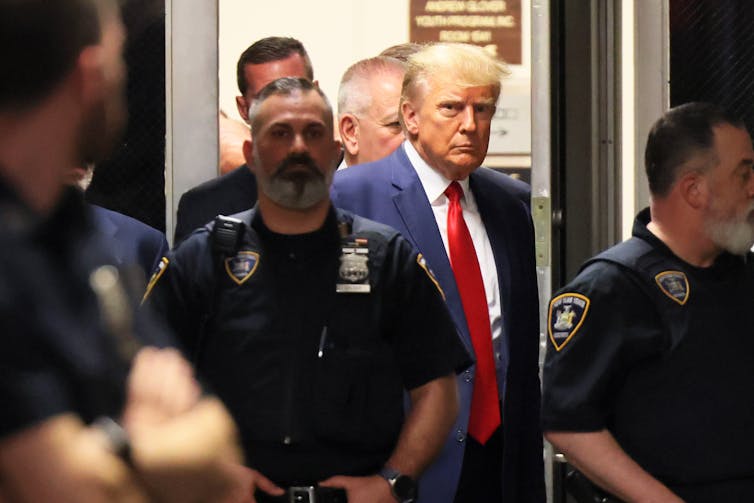 Former President Donald Trump arrives for an arraignment hearing on April 04, 2023, in New York City. Michael M. Santiago/Getty Images
Former President Donald Trump arrives for an arraignment hearing on April 04, 2023, in New York City. Michael M. Santiago/Getty Images
Is it evil to violate a state’s business record laws?
Is it immoral to violate national security laws?
Are they more like a traffic violation or a premeditated homicide?
What if the former president violated the business record laws for the purpose of violating some other law, which raises the conduct from a misdemeanor to a felony?
In his public statements shortly after indicting Trump, Manhattan District Attorney Alvin Bragg explained that New York is the financial capital of the world and that the state has a significant interest in enforcing its business records laws.
Bragg further explained that failure to police business records laws could have an impact on consumers – real, everyday people who rely on fair business practices, which, in turn, is the basis for fair markets, fair interest rates and fair prices for a range of goods and services.
No one is above the law
In the end, the decision to criminally charge a former president turns on a tricky question.
Equal protection under law is a value that Americans should hold dear. But when it comes to a former president, competing values must be considered.
Is the alleged crime so egregious that the benefit of holding a former president equal before the law outweighs the cost associated with the appearance of a partisan, weaponized prosecution?
So far, Smith and Bragg are the only state and federal prosecutors to answer that question by seeking an indictment.
“We today uphold our solemn responsibility to ensure that everyone stands equal before the law,” Bragg said. “No amount of money … and power changes that enduring American principle.”
Likewise, Jack Smith urged those interested in the case to read the indictment before making charges that his investigation was politically motivated.
“Our laws that protect national defense information are critical to the safety and security of the United States, and they must be enforced,” Smith said. “Violations of those laws put our country at risk.”
This article has been corrected to fix the position held by Benjamin Netanyahu.

